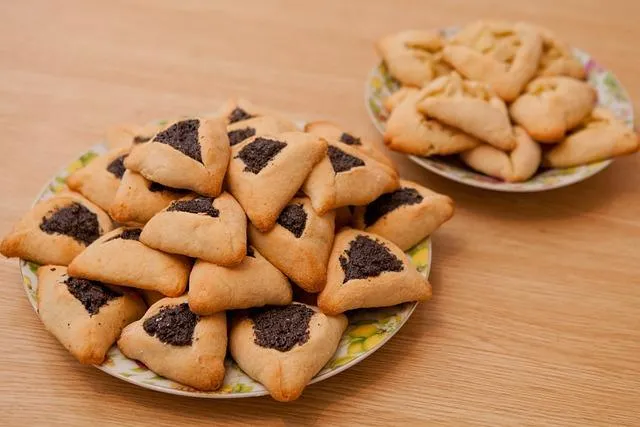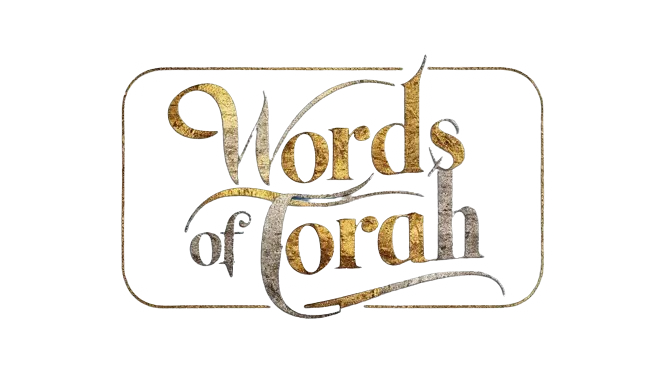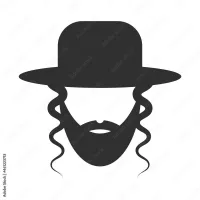by Natan Kaziev

Purim Synopsis
Purim Synopsis
By Natan Kaziev
Obligations on purim
1) Reading the Megillah (once at night and once during the day)
2) Mishloach Manot (minimum 2 foods to 1 person)
3) Matanot La’evyonim (gifts of money or food to minimum of two poor people)
4) Se’udat Purim (with bread, meat, and wine)
Netz on Purim morning
Our Rabbis recommend that one pray at sunrise on Purim, a few reasons are offered:
1. The Machatzit Hashekel (693:2) suggests that one should wake up early since there are many mitzvot that need to be done.
2. Sefer Chemdat Aryeh suggests that since Bnei Yisrael accepted the Torah she’be’al peh with love and joy on Purim, therefore just like Shavuot, we wake up early as well.
3. Me’am Lo’ez writes: Just like Haman woke up early in order to go to Achashverosh, so too we wake up early to be able to do Mitzvot.
Megillah Reading
On Purim we do not recite Hallel. Our Rabbis explain that the Megillah reading is the Hallel. The Megillah reading is a praise to Hashem for saving our lives. Although Hashems name isn’t mentioned even once in the Megillah, many allusions to Hashem are found. We gather together to a large congregation so that we can praise Hashem in multitude.
The Kaf Hachaim (689:1) writes, everyone is obligated in reading the Megillah, even Jews who were not under Achashveiroshes rule (he only ruled 127 provinces and there are 252). This is because Haman wanted to destroy the Jewish people and many tribes were affected, this affects all Jews, as without even one tribe Hashems name is not complete. Hashems name has four letters which interchanges to twelve different variations of spelling. If one tribe is destroyed then Hashems name is incomplete. This is alluded to in Megillah as it begins with the letter vav(6) and concludes with the letter vav (6) alluding to the 12 tribes and 12 variations of Hashems 4 letter name.
Although women are generally exempt from time-bound mitzvot, they are however, obligated to hear the Megillah reading as they were included in the miracle. Our Rabbis debate the meaning of, “they were also included in the miracle”. Either it means the decree of Haman affected women as well and they were spared just like the men. Or that the main salvation came through a woman - Esther (See Rashi and Tosafot to Megillah 4a).
Mishloach Manot
Haman’s claim to Achashveirosh was that the Jews are disunited and therefore it’s an opportune time to destroy them. After learning of the horrible decree the Jews united together in prayer. Once we united we were invincible and the salvation came. Therefore on Purim we give gifts of food to another Jew to promote unity and love amongst one another. In fact if one sends Mishloach Manot anonymously they have not fulfilled their obligation since the recipient does not know who sent it. It should be known whom the sender is so that love will be attributed properly.
Matanot La’evyonim
I saw a beautiful idea as to why we give to the poor on Purim. When the Jews went out to war on the 13th of Adar, they defeated their enemies, however not one person took loot (see Megillat Esther 9:15-16). This was in order to sanctify Hashems name that they aren’t fighting for the sake of fighting and for personal benefit. This was an extremely difficult test for the poor amongst the Jews who perhaps needed the money to support their families. They had an open opportunity to take, yet they refrained from doing so, therefore we reward them.
Se’udat Purim
The Purim se’udah is so special as it signifies full atonement for partaking in Achashveirosh’s se’udah. If the sin was not totally rectified, we would have to atone for it by afflicting ourselves on Purim. The fact that we have a mitzvah to enjoy an honorable meal with simcha shows that Hashem fully atoned us for partaking in Achashveirosh’s se’udah.
The Zohar writes, on Purim one may accomplish through bodily pleasure, what he can accomplish on Yom Kippur through bodily affliction. The Machzor Vitri (465) writes, on Purim, when everyone conducts long meals, Heaven will grant them all their hearts desires.
I heard from the Kalever Rav once, the salvation in the Purim story already began with the se’udah of Achashveirosh. As the Gemara tells us on the seventh day which was Shabbat, the King was content with his wine and at that se’udah the vast difference between goyim becoming drunk and Jews becoming drunk was discerned. The goyim were speaking lowly perversive conversations while the Jews were praising Hashem and sharing divrei Torah. Already at the se’udah which the Jews were guilty of partaking in, Hashem recognized the uniqueness of his people and began the salvation process by having Vashti killed.
The Yismach Moshe writes that on Purim whatever one spends on the se’uda will be repaid to him just as we find on Shabbat and Yom Tov (in the Megillah it says this day was a yom tov for this purpose).
No Background check
Purim is an extremely opportune time to have ones prayers answered as it says in the Megillah, והימים האלה נזכרים ונעשים - These days are remembered and fulfilled. Alluding to the fact that on these days Hashem remembers us and fulfills our requests.
The Halacha (Yerushalmi Megillah 1:4) is that we give anyone who asks Tzeddakah on this day without doing a background check to verify if they really deserve this money. Alluding to how Hashem deals with us on these days of Purim, granting our requests even if we may not be worthy.
Torah on Purim
The Netivot Mishpat quoting Megillat Setarim explains that on purim we we’re not only celebrating the fact that we were saved from physical destruction but also the fact that we accepted the Torah with love. This explains why Purim was established as a holiday and not other such days, although we have many such days throughout history where we were saved from total annihilation. This is because on Purim we mainly celebrate the fact that we accepted the Torah with love and joy. One should therefore establish some time on Purim to learn Torah.

